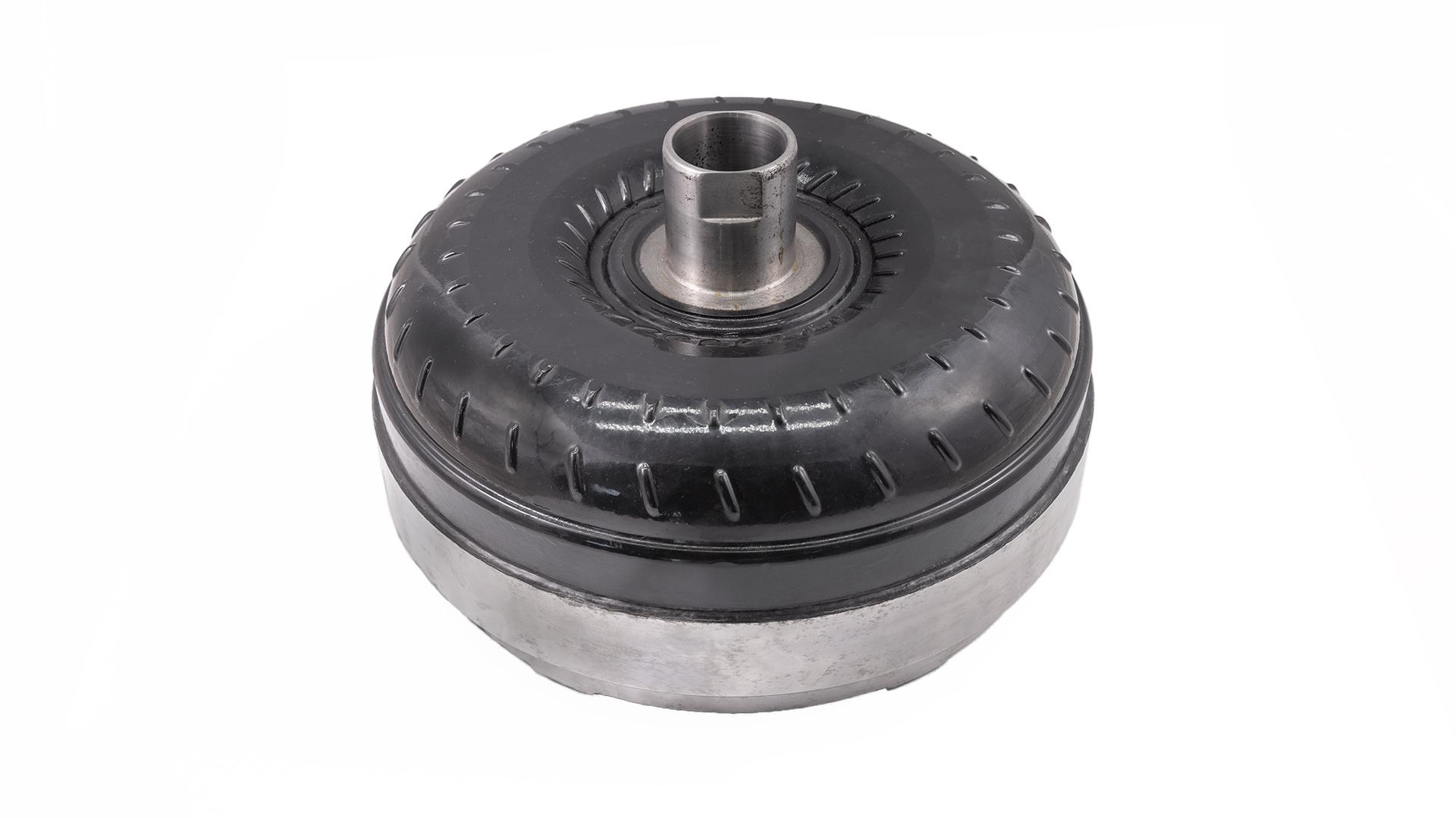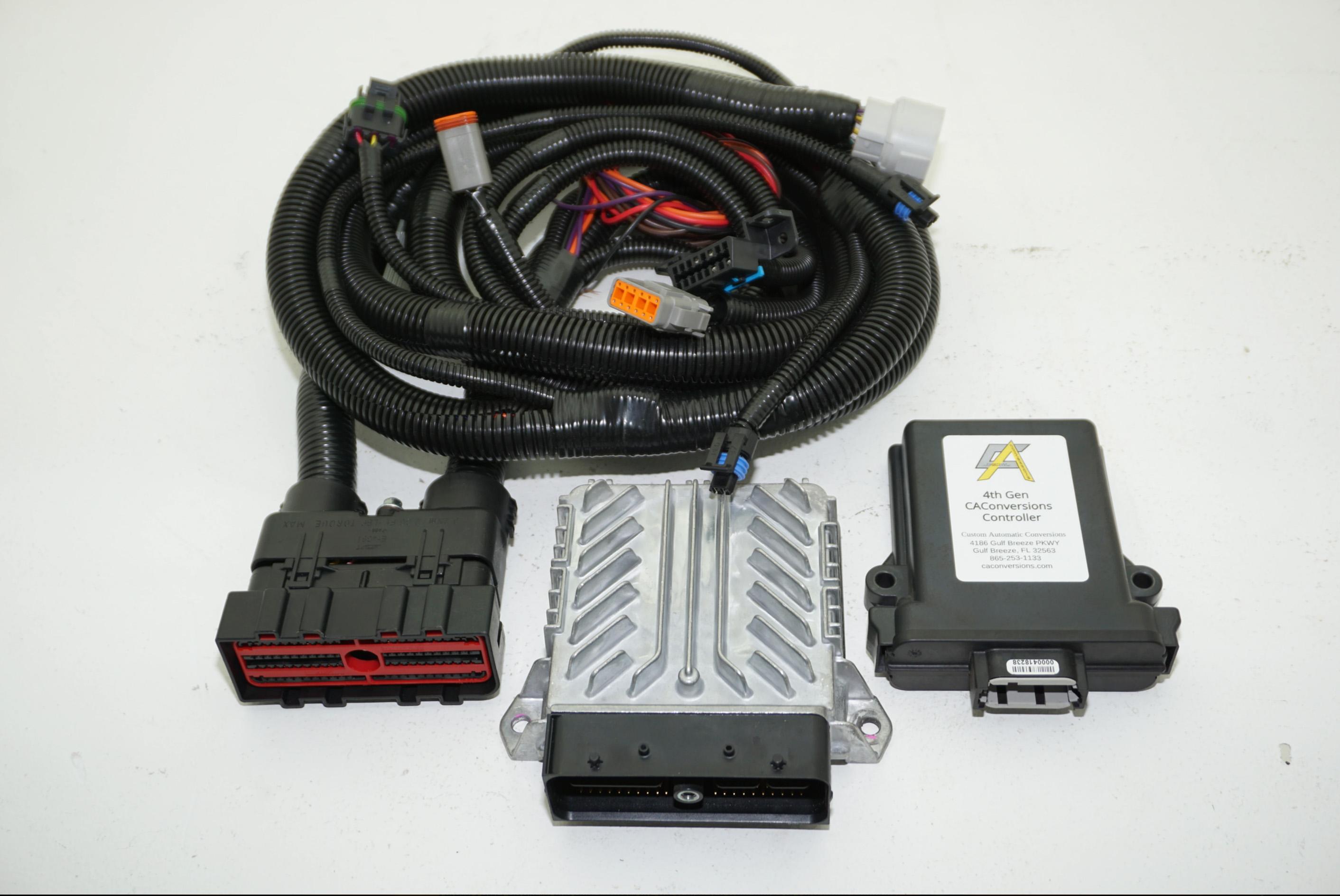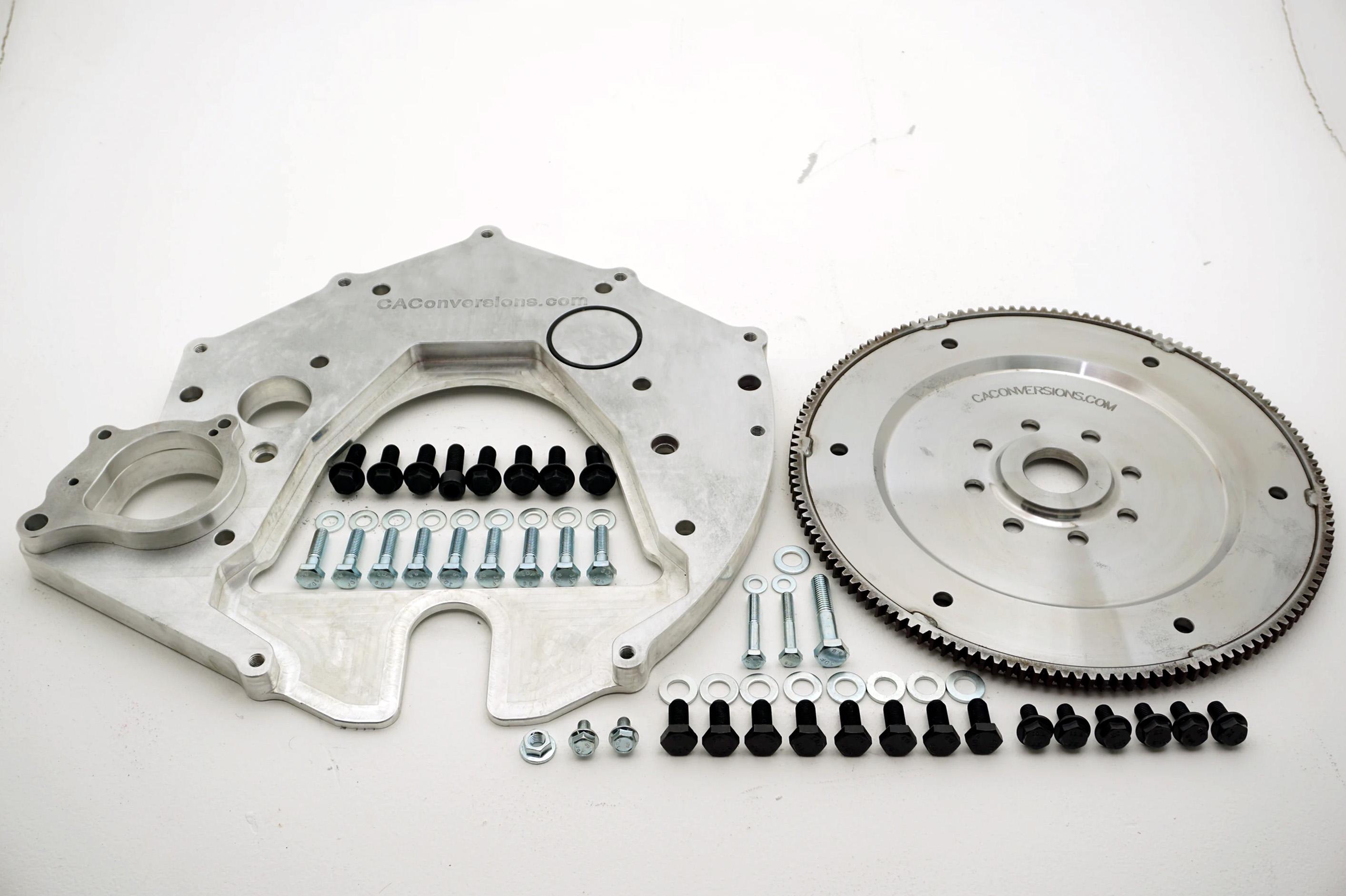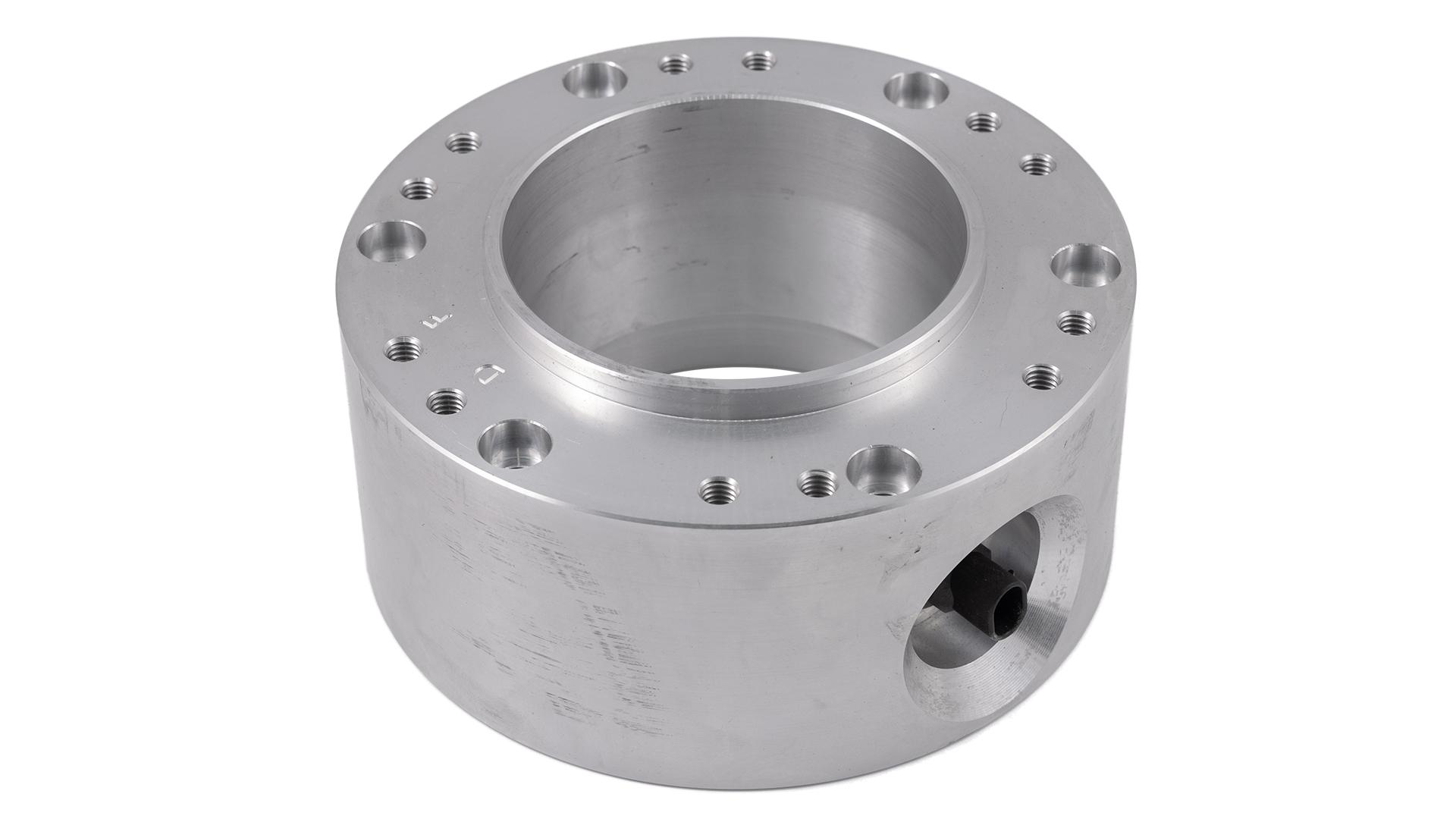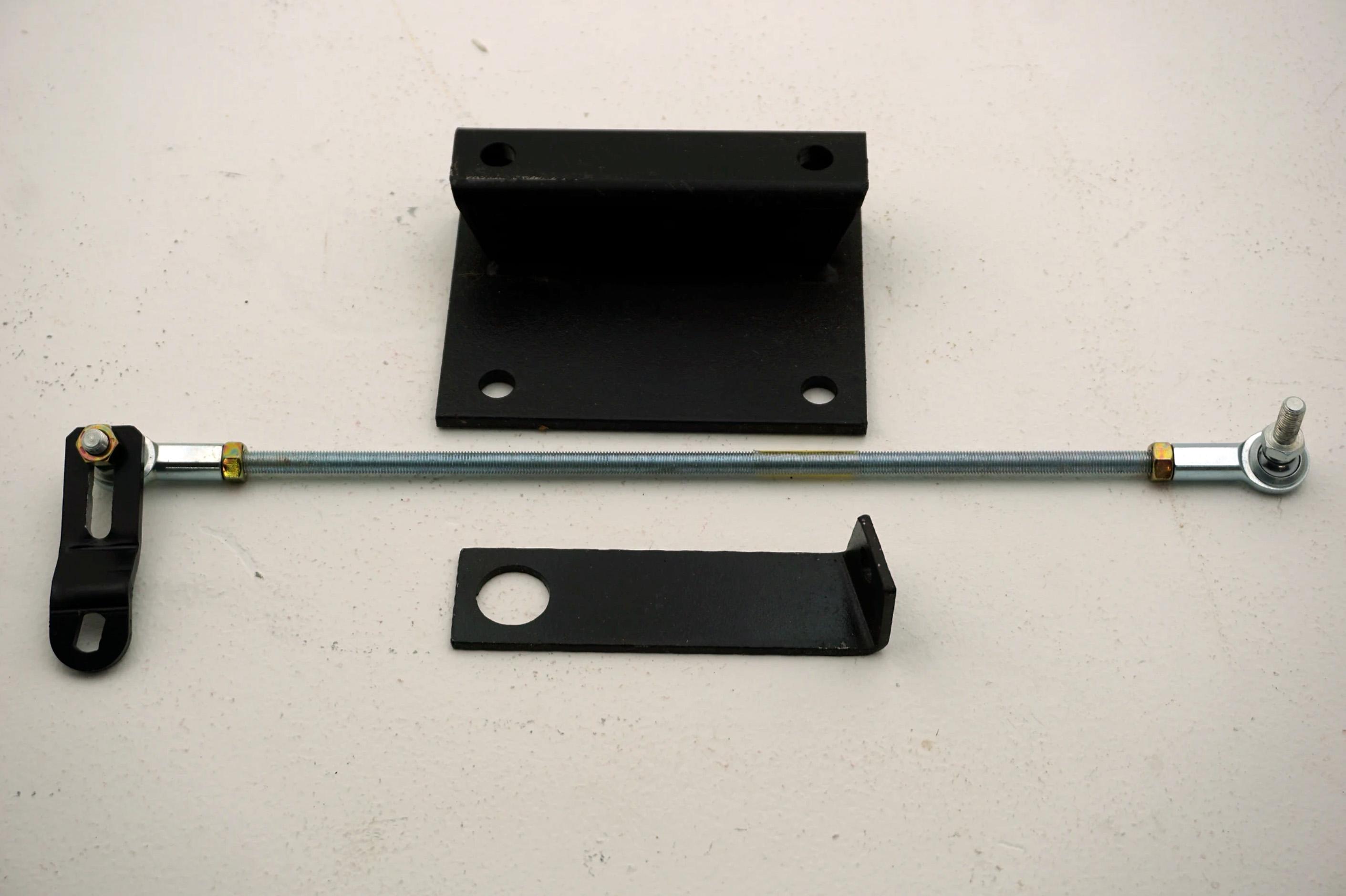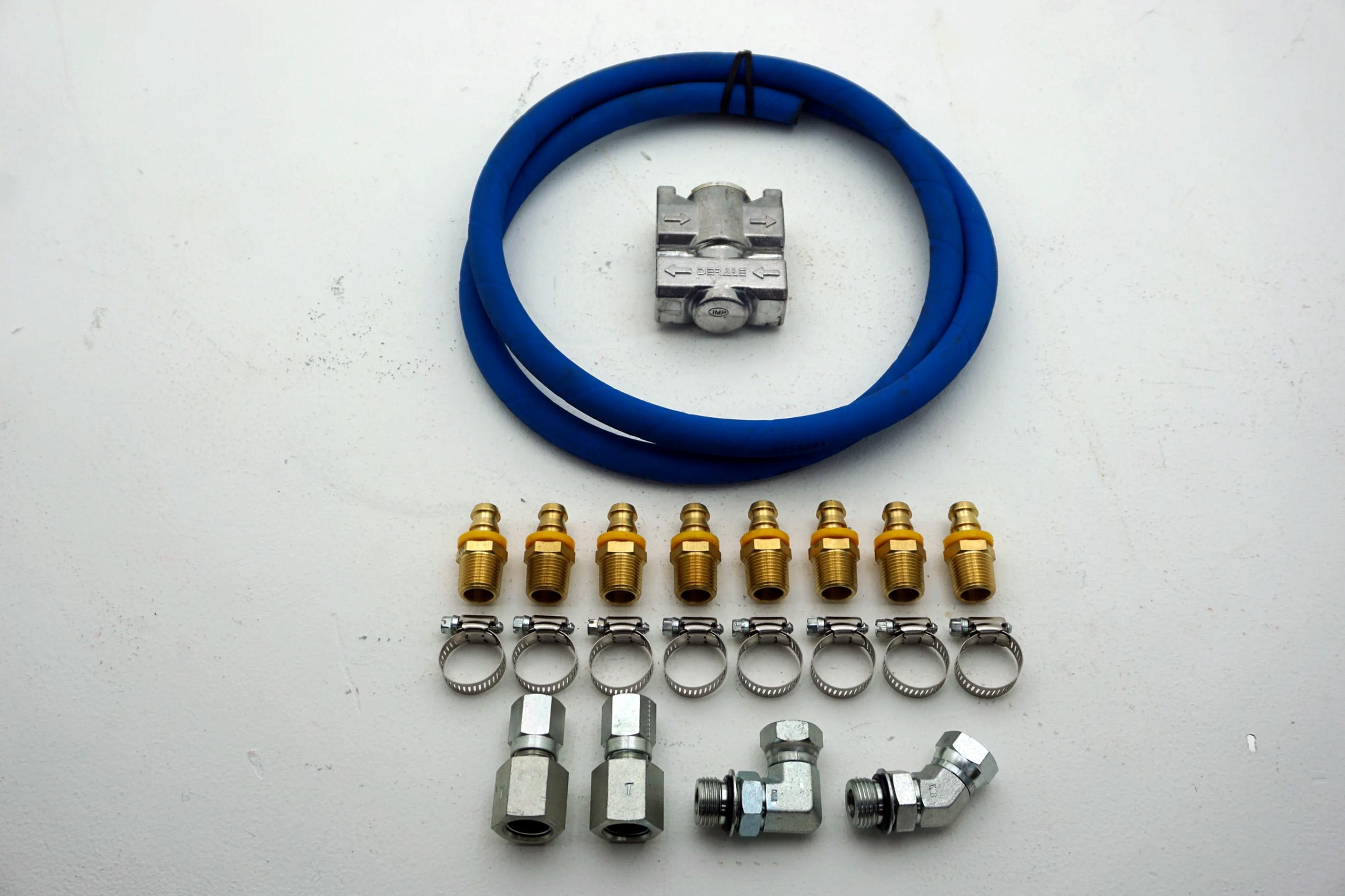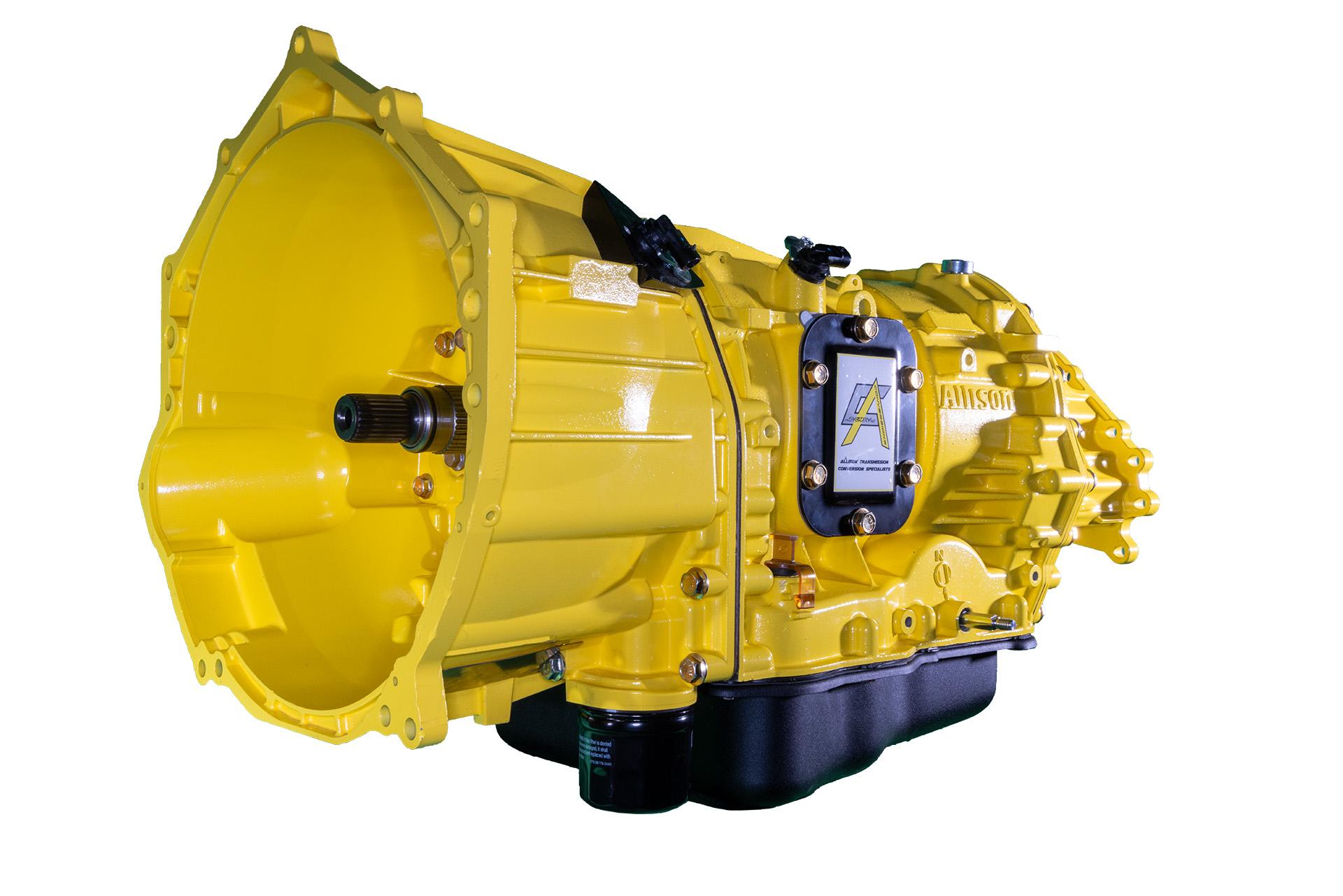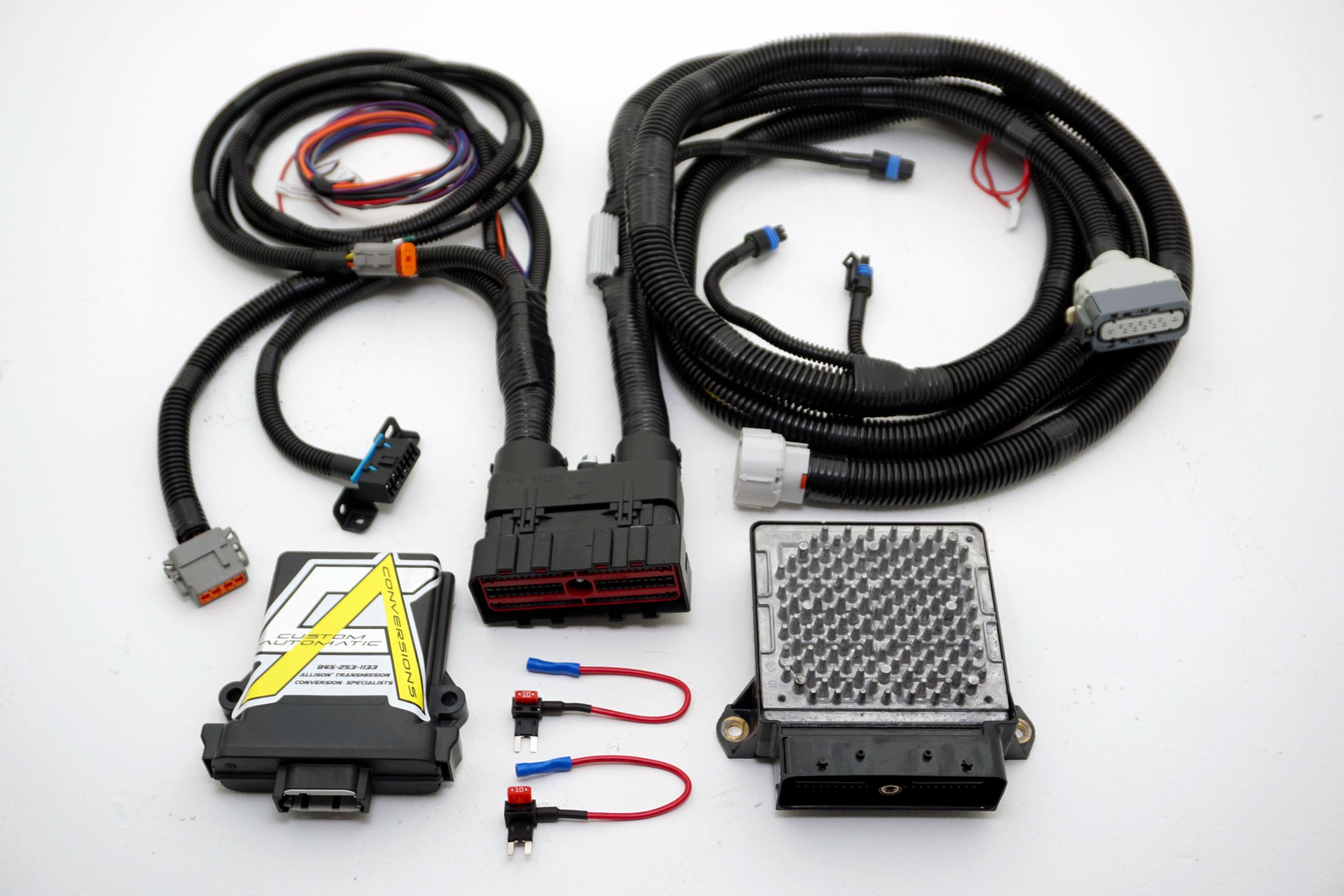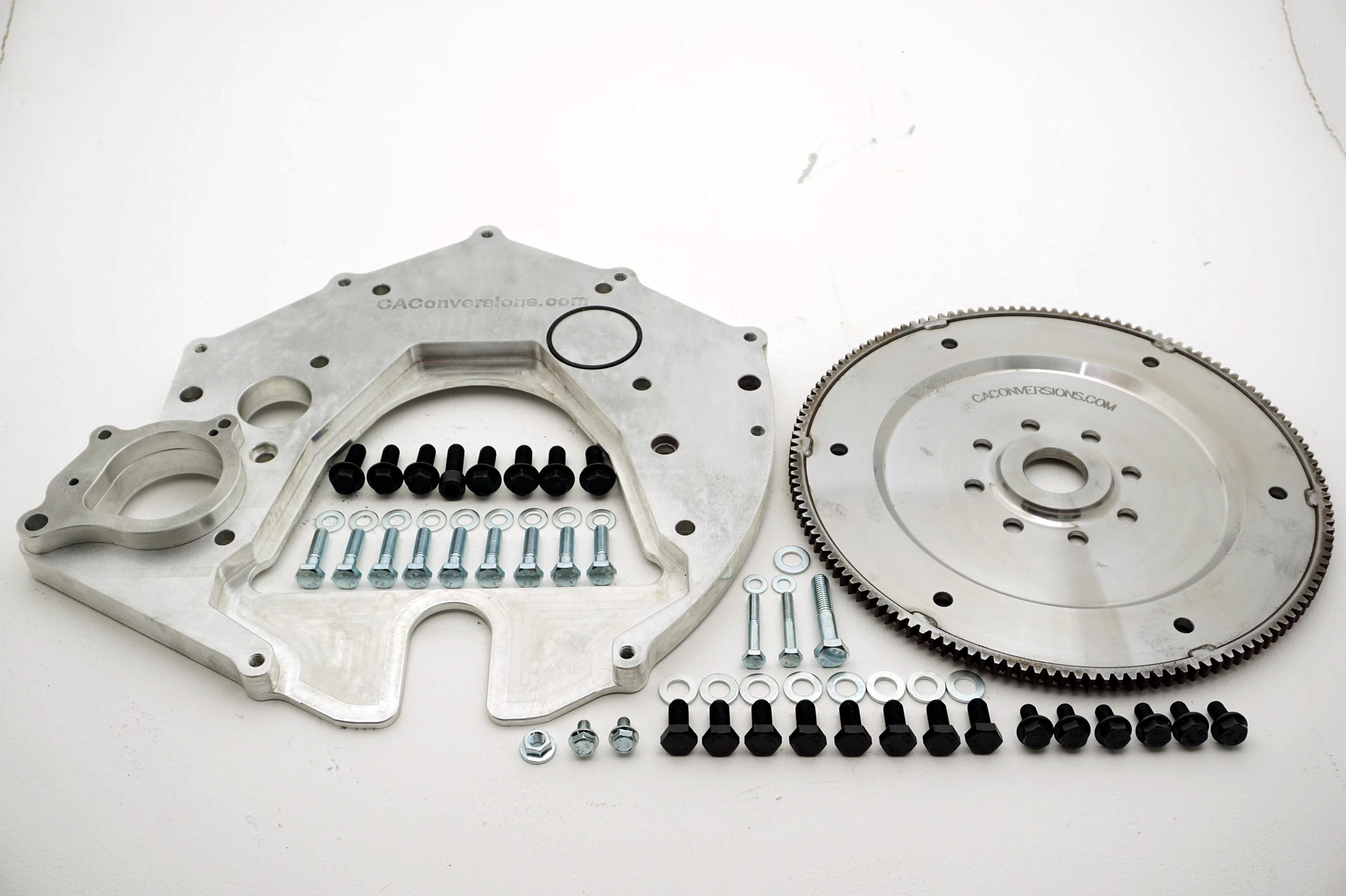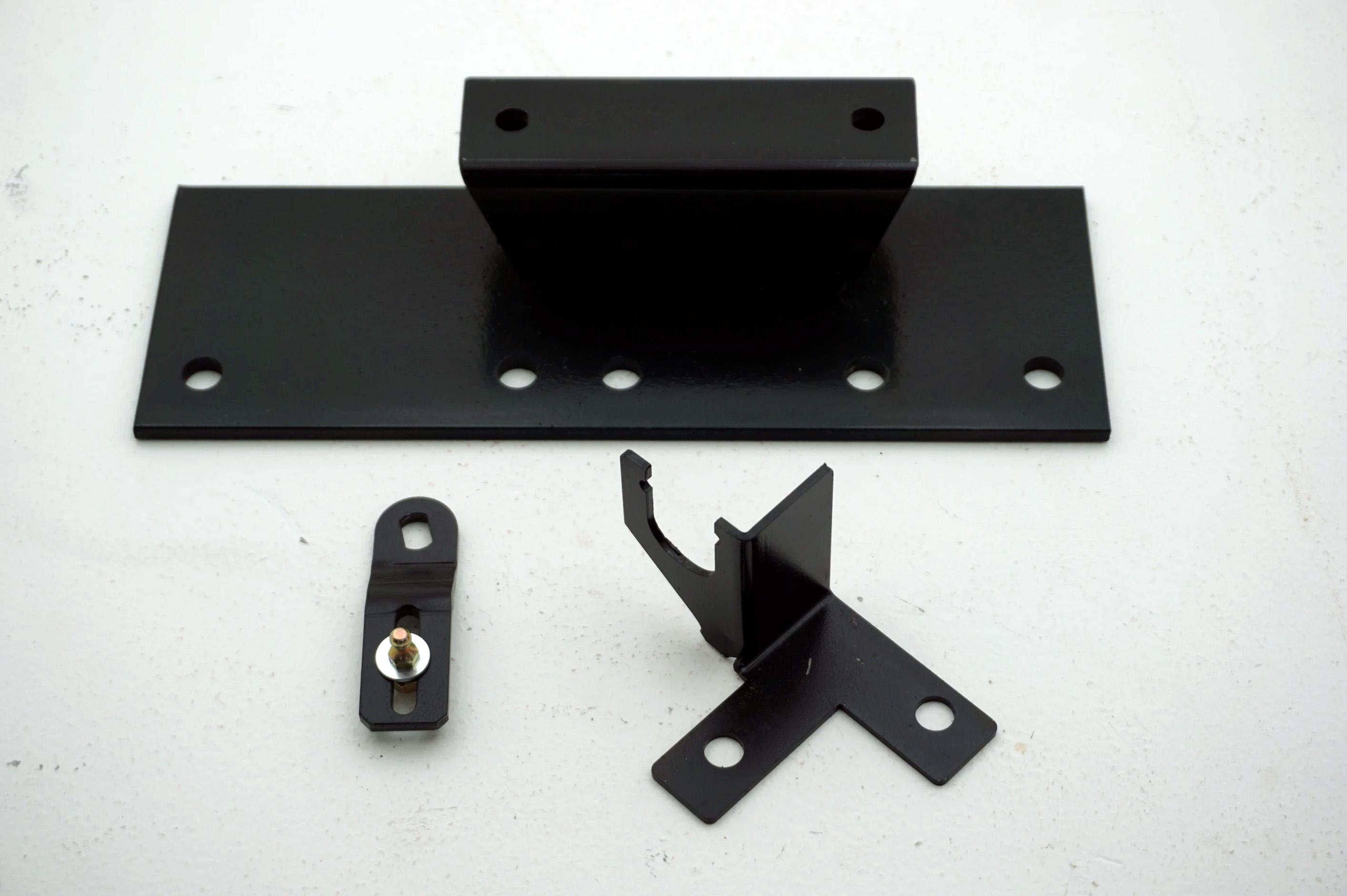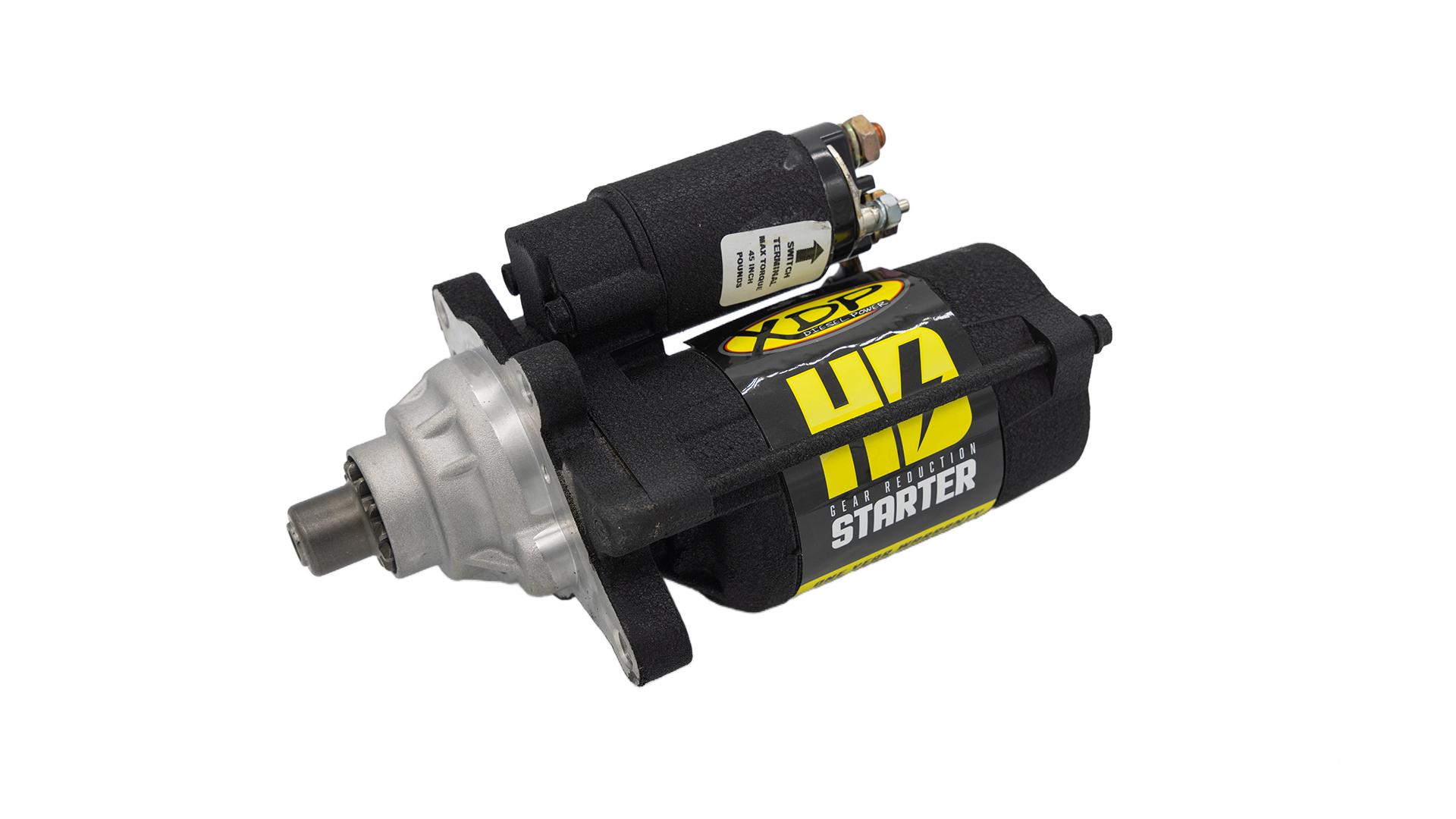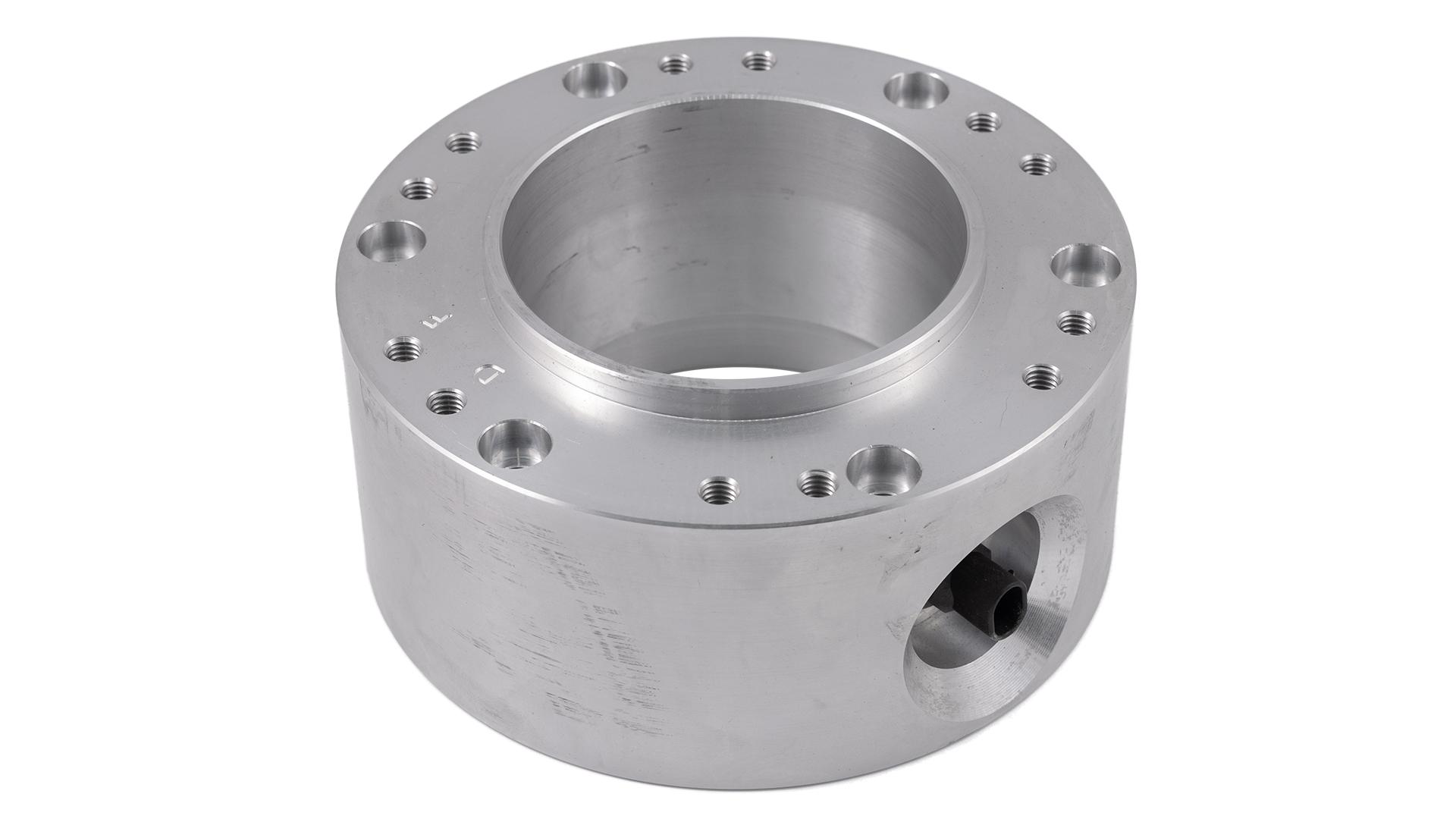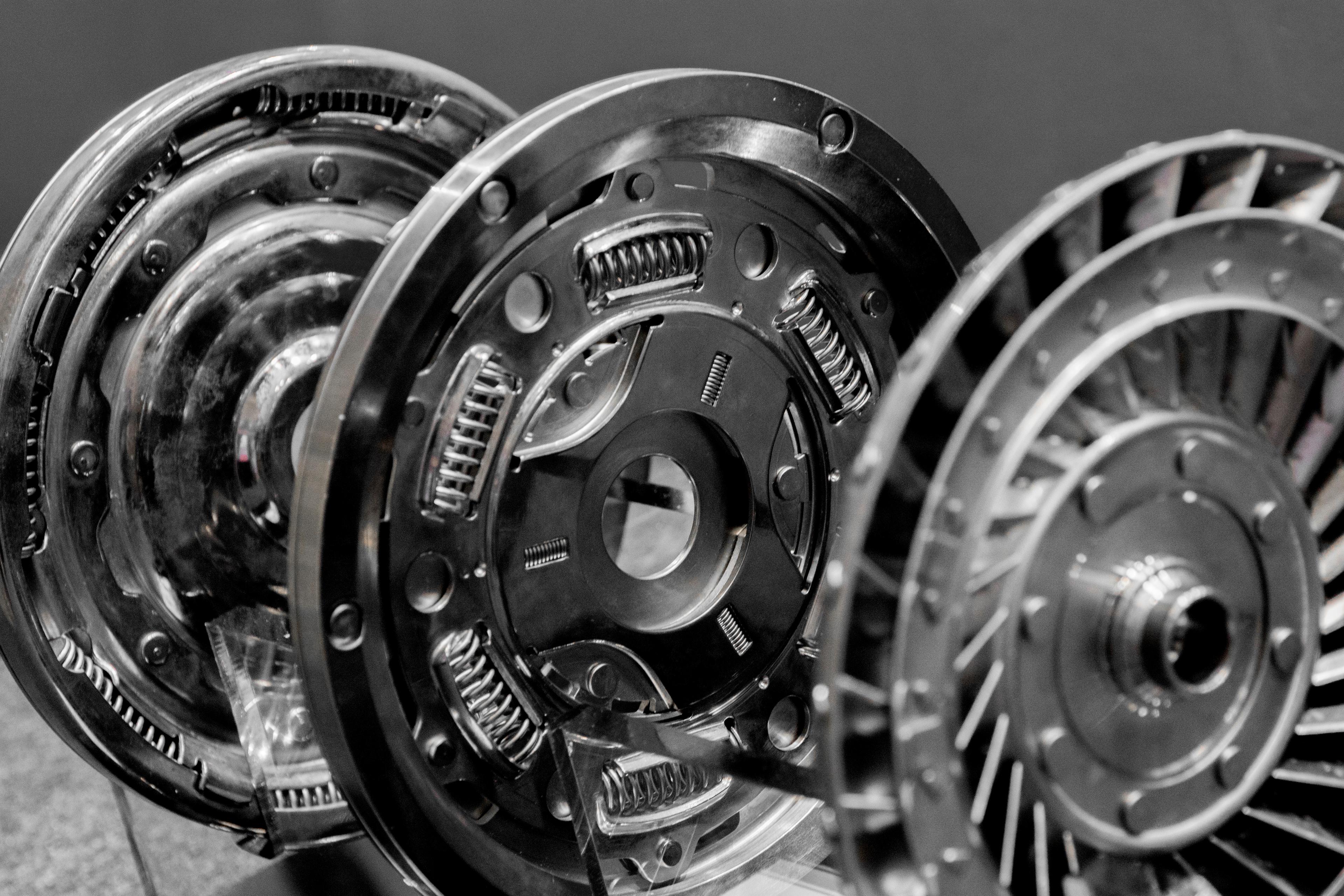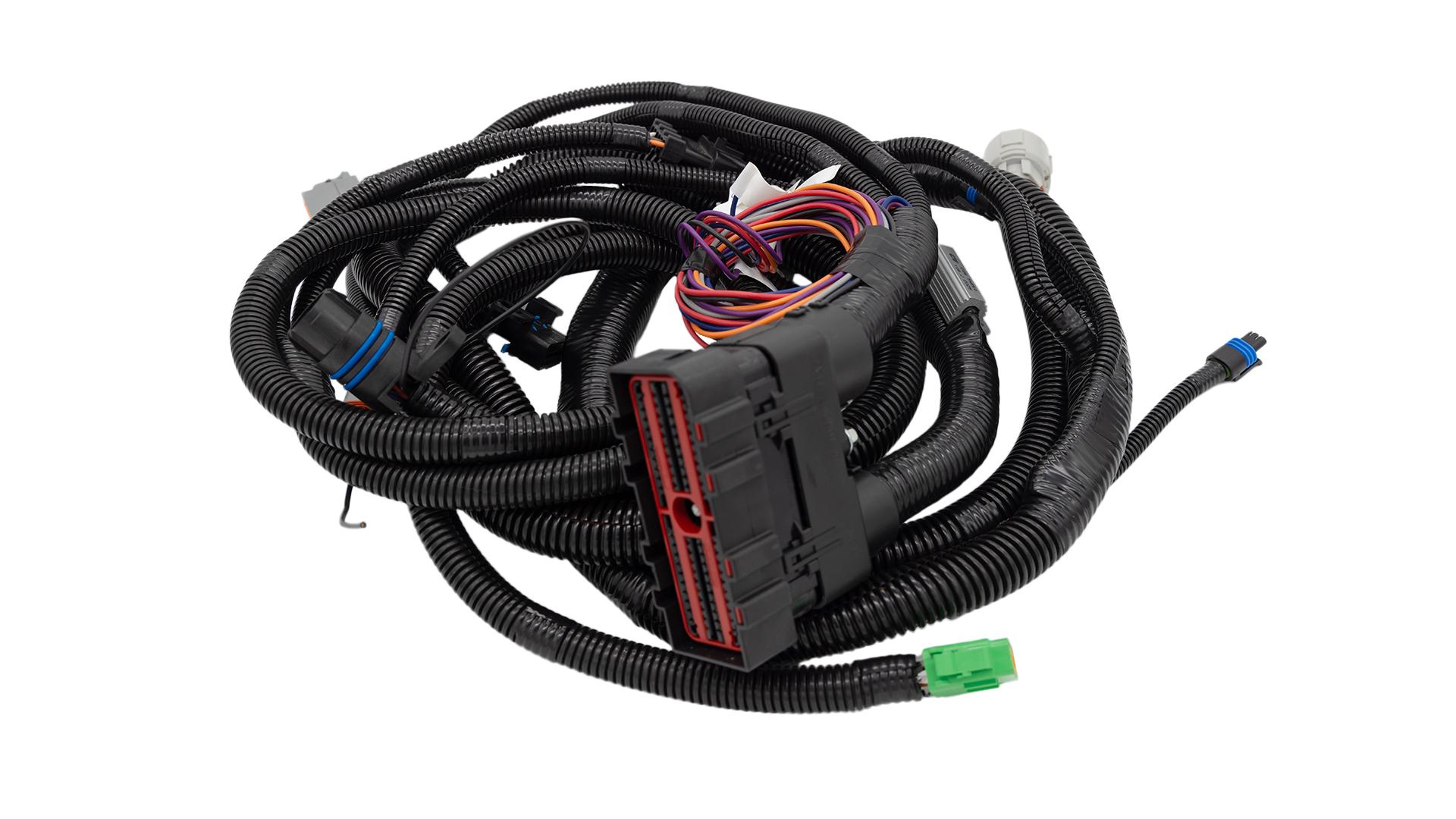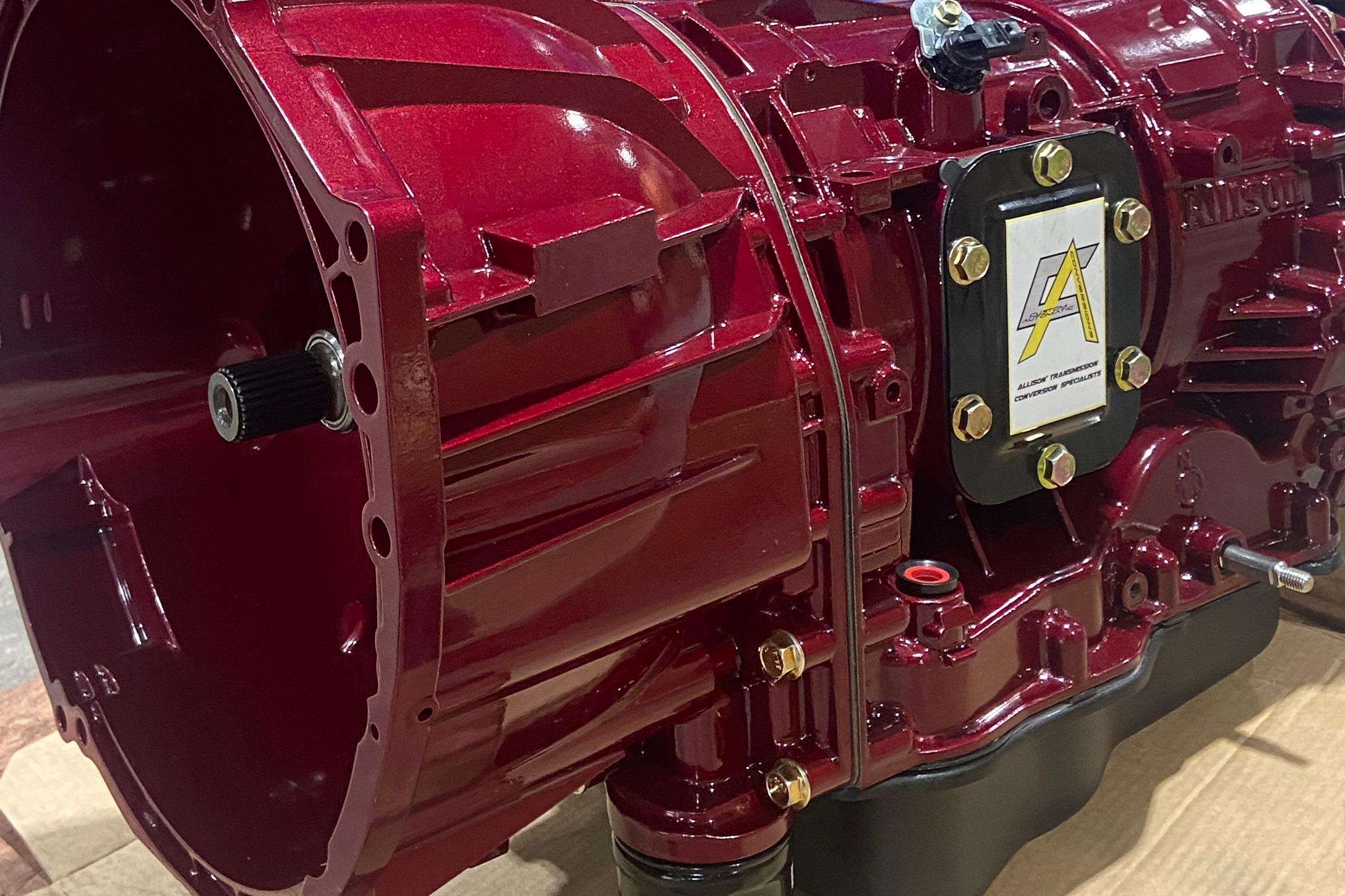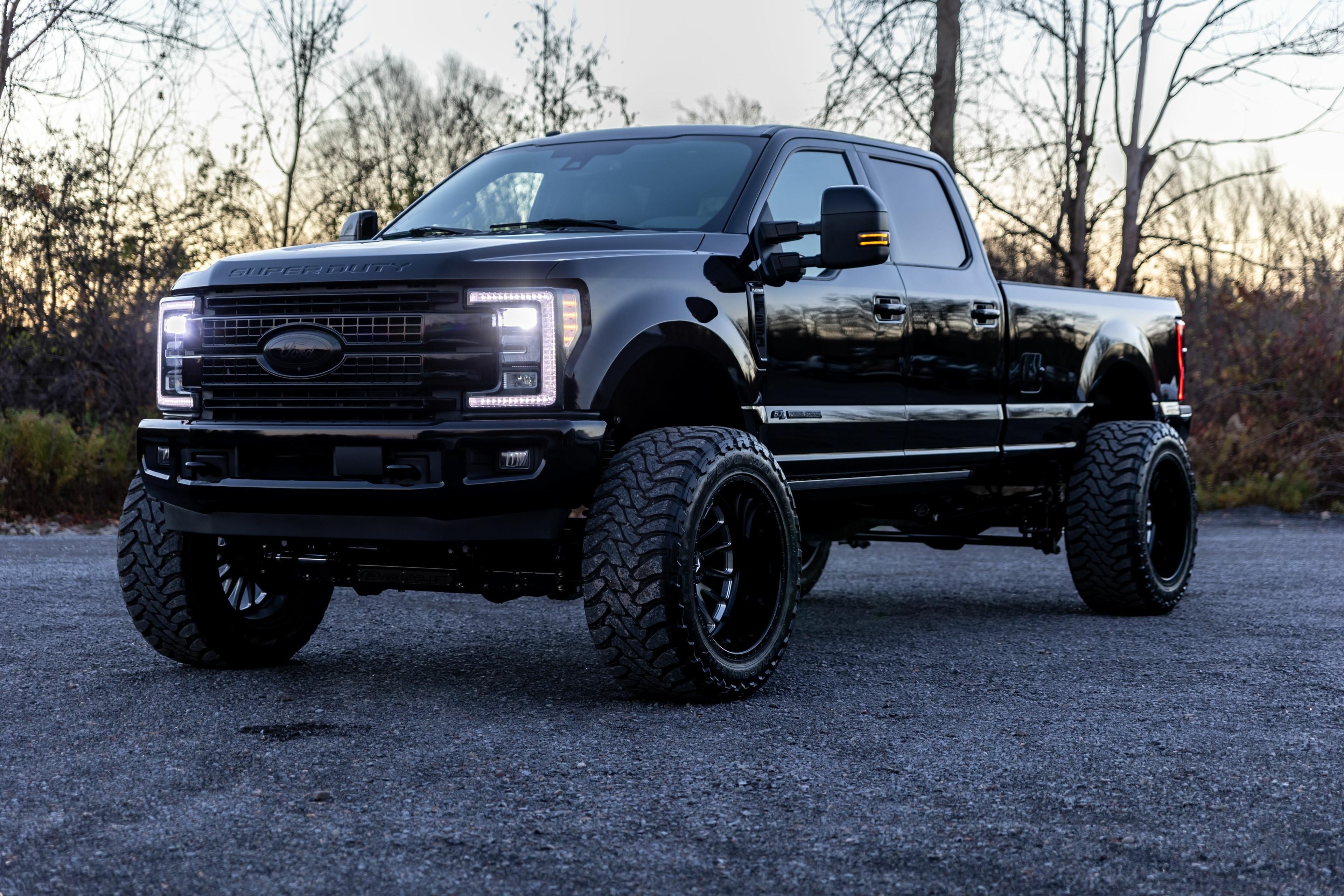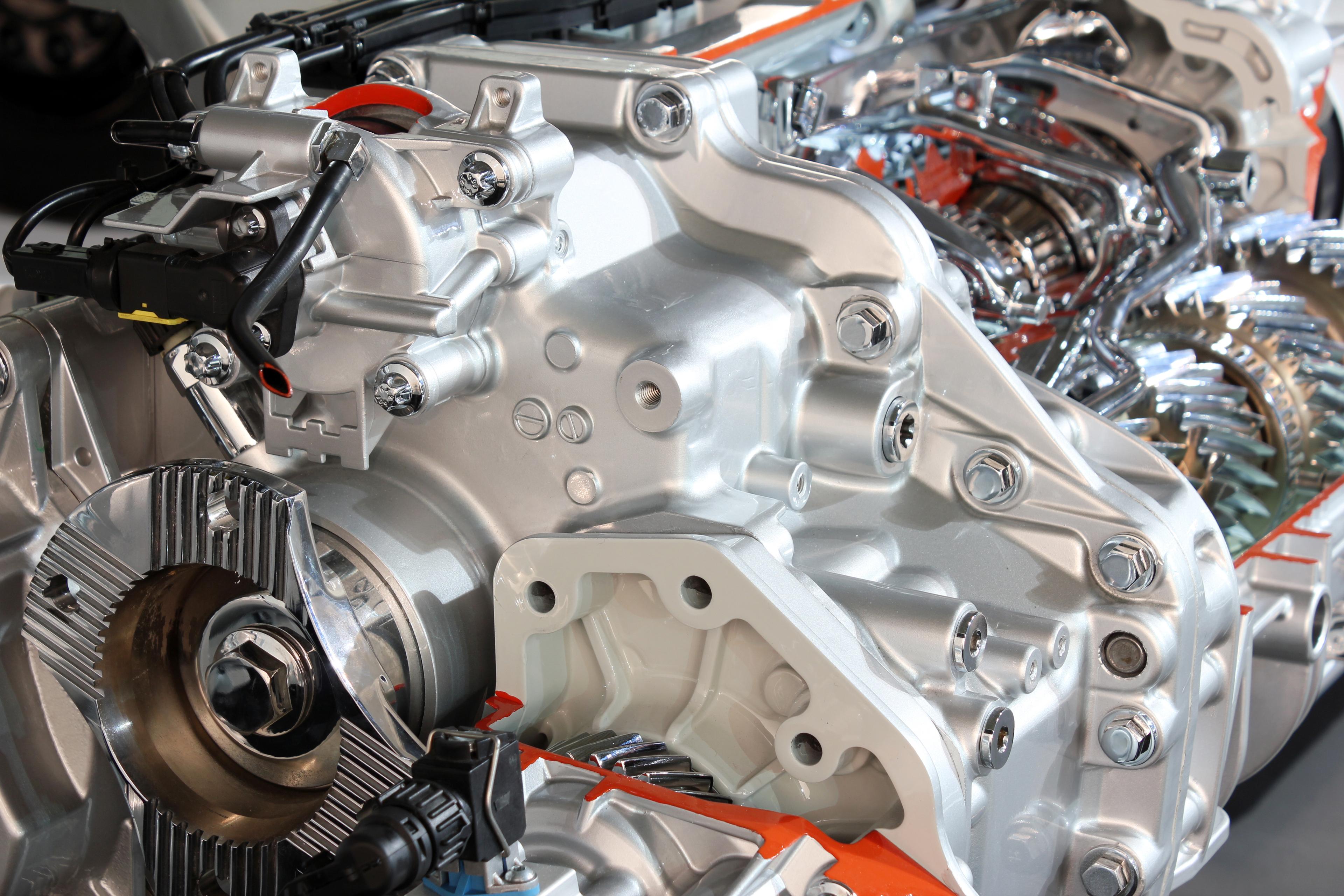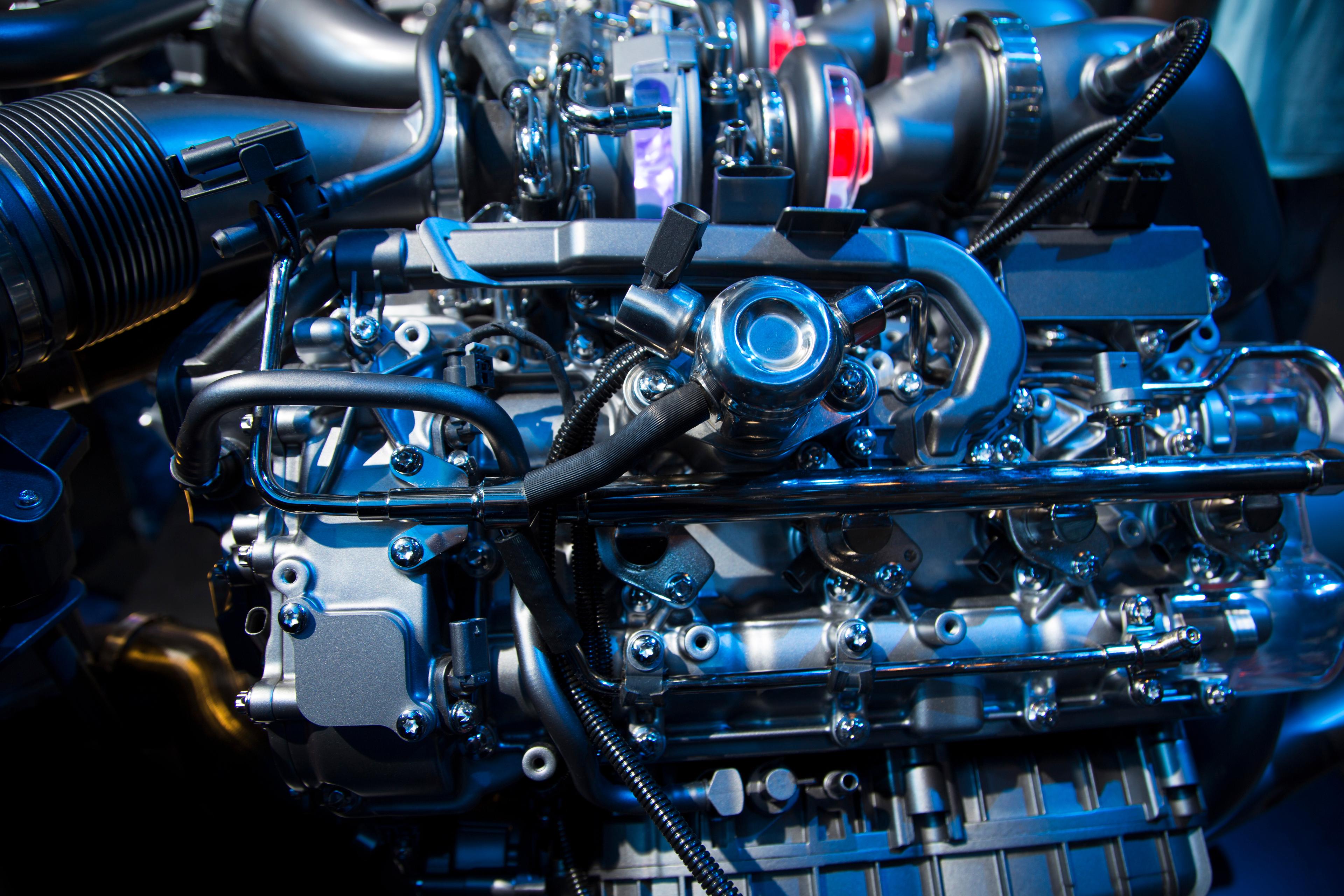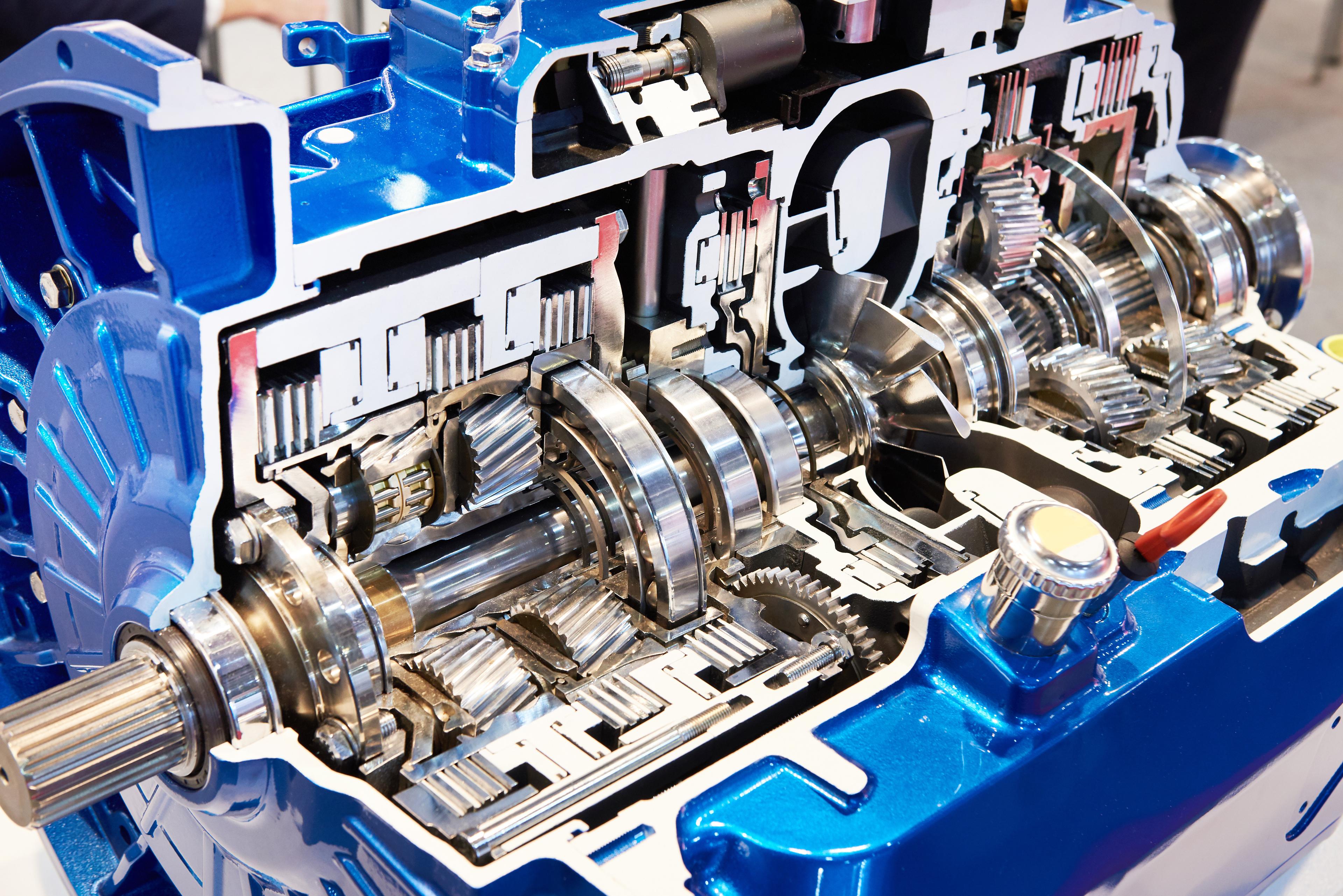Dodge 48RE w/ Throttle Valve Cable (TVC) Transmission

Convert your Dodge 48RE w/ TVC to an Allison
Transform Your Drive: Making the Switch to an Allison 1000PK Transmission
Configure your truckIntroducing the ultimate upgrade for your heavy-duty towing and performance needs: the Dodge 48RE to Allison 1000PK transmission conversion, now featuring a Throttle Valve Cable (TVC). As a powerhouse in the world of truck transmissions, the Allison 1000PK delivers unparalleled smoothness, reliability, and strength, designed to handle the most demanding of loads. With the integration of the TVC, you gain precise control over your transmission’s shift points, enabling optimal performance and fuel efficiency. This conversion is not just a change—it’s a transformation, reinventing your Dodge’s drivetrain to provide a towing experience that is smoother, stronger, and more responsive than you ever thought possible. Say goodbye to the days of rough shifting and constant transmission worries; say hello to the peace of mind that only an Allison 1000PK can provide.

Overview of the 48RE TVC Transmission
The 48RE is a robust four-speed automatic transmission, designed and manufactured by Chrysler for use in its line of Ram trucks, as well as in the Dodge Ram 2500 and 3500 series. Known for its exceptional reliability and torque capacity, this transmission was designed primarily to handle the demands of the potent Cummins turbodiesel engines, making it a go-to choice for heavy towing and hauling duties.
The 48RE's innovative Throttle Valve Cable (TVC) plays a critical role in modulating the transmission’s hydraulic pressure in response to engine throttle input. This results in precise shift control, enhancing both the performance and fuel efficiency of the vehicle. Constructed with a sturdy steel case and fortified internal components, the 48RE is built for endurance. Its design is focused on functionality and durability, ensuring that it can stand up to the demands of heavy-duty truck use without flinching.
While automatic transmissions like the 48RE have become the norm in modern trucks, they still appeal to a specific kind of driver: one who values the convenience and ease of an automatic but wants to maintain substantial towing and payload capacities. The 48RE, especially when equipped with a TVC, offers this blend of practicality and performance, making it an attractive option for both work and play.
48RE TVC Features
The 48RE TVC transmission is designed with heavy-duty applications in mind, notably for Dodge Ram 2500 and 3500 series trucks. Here are some key features that set the 48RE TVC apart:
- High Torque Capacity: Engineered to handle the high levels of torque generated by powerful engines, making it ideal for towing and hauling heavy loads.
- Throttle Valve Cable (TVC): Allows for precise control over the transmission’s shift points, resulting in optimal performance and fuel efficiency.
- Durable Construction: The 48RE features a rugged steel case and fortified internal components to withstand heavy-duty use.
- Efficient Gear Ratios: Designed with gear ratios that offer a balance between powerful low-end performance and fuel-efficient highway cruising.
- Hydraulic Pressure Modulation: The TVC modulates hydraulic pressure effectively, resulting in smoother and more precise shifting under a variety of load and throttle conditions.
- Adaptability: The 48RE’s design allows for various aftermarket upgrades, enhancing its performance and longevity even further.
In summary, the 48RE TVC transmission is a robust, reliable, and efficient automatic transmission, designed to meet the rigorous demands of heavy-duty truck applications. Its integration with a Throttle Valve Cable ensures that drivers have a responsive and effective tool at their disposal, whether they are towing heavy loads or cruising the highway.
48RE TVC Common Issues and Signs of Failures
While the 48RE TVC transmission is designed for durability and performance, like all mechanical components, it is not immune to issues. Below are some common problems associated with the 48RE TVC transmission, along with signs that it might be failing:
- Overheating: Heavy towing and hauling can lead to excessive heat, which can cause fluid breakdown, warped components, and eventual transmission failure. Signs of overheating include slipping gears, delays in engagement, and fluid leaks.
- Solenoid Problems: The solenoids control the flow of fluid throughout the transmission. If a solenoid fails, it may result in improper shifting or failure to shift. This is often indicated by erratic shifting patterns or failure to shift at all.
- Worn Bands and Clutches: These components are essential for shifting gears. Wear and tear over time can lead to slippage and erratic shifting. If your transmission is slipping between gears, this is a common sign of worn bands and clutches.
- TVC (Throttle Valve Cable) Maladjustment or Damage: Incorrect TVC adjustment can result in improper shifting points and harsh or soft shifts. A damaged TVC can lead to similar issues.
- Torque Converter Issues: A failing torque converter can lead to a variety of problems, including overheating, slipping, and shuddering.
- Fluid Leaks and Contamination: Transmission fluid is the lifeblood of the 48RE. Low fluid levels due to leaks, or contaminated fluid, can lead to shifting issues, overheating, and eventual failure.
- Electronic Control Module (ECM) Failures: The ECM controls the shifting of the transmission based on a variety of sensor inputs. A faulty ECM can result in erratic or harsh shifting, delayed engagement, or complete transmission lockup.
- Worn or Damaged Valve Body: The valve body is the control center of the transmission. Wear or damage here can result in delayed or harsh shifts, and in severe cases, complete transmission failure.
- Input and Output Sensor Failures: These sensors provide crucial data to the ECM. Failure of these sensors can result in incorrect shifting patterns and, in some cases, complete loss of shifting.
Regular maintenance, including changing the transmission fluid and filter according to the manufacturer’s recommendations and promptly addressing any of the issues above, can significantly extend the life of a 48RE TVC transmission.
When experiencing any of these symptoms, it is advisable to consult with a professional mechanic or transmission specialist to diagnose and address the problem before it leads to a complete transmission failure.
Rebuild, Replace, Converting to an Allison

Converting from a Dodge NV5600 manual transmission to an Allison 1000PK automatic transmission can bring several benefits, depending on the specific needs and use of the vehicle. Here are some notable advantages of making such a conversion
Allison transmissions, including the 1000PK series, are renowned for their ruggedness and reliability. They are designed to withstand harsh conditions and heavy loads, making them ideal for heavy-duty applications.
With its robust design and superior torque capacity, the Allison 1000PK is well-suited for heavy towing applications. This is particularly beneficial for those who frequently haul trailers, boats, or other heavy loads.
The Allison 1000 series transmissions are renowned for their durability and can have a longer lifespan under heavy-duty use compared to some other transmissions, including the NV5600.
The Allison 1000PK is designed for smooth and precise shifting. This provides an improved and more comfortable driving experience, particularly under heavy load conditions.
Although fuel efficiency can vary based on several factors, some users report improved fuel economy after converting to an Allison transmission due to its efficient design and operation.
Because of its durability, an Allison transmission can contribute to extending the lifespan of the entire vehicle, reducing long-term maintenance costs and increasing the vehicle’s resale value.
The Allison 1000PK series can be adapted for a variety of uses, from daily driving to commercial applications. Its controls can often be programmed to suit specific needs, allowing for customization of shift patterns and behavior based on the driver’s preferences and the vehicle’s use case.
For some buyers, a vehicle with a well-regarded automatic transmission like the Allison 1000PK may have higher resale value due to its ease of use and strong reputation for reliability.
Allison transmissions are widely used in various industries, which means that parts and service are generally more readily available. In addition, they are known for their ease of maintenance, which can reduce downtime and service costs.
The Allison 1000PK is designed to handle high power outputs efficiently. This is especially beneficial for vehicles with highly-tuned or powerful engines.
The advanced engineering of Allison transmissions, including features like adaptive shift controls, contributes to enhanced vehicle stability and safety, especially under challenging driving conditions.
Vehicles fitted with a known and respected transmission like the Allison 1000PK may have a higher resale value due to the reputation of these units for reliability and performance.
Allison Transmission has an extensive global network of service and support centers, making it easier for owners to get expert assistance and parts when needed, no matter where they are located.
For commercial vehicle operators or fleet managers, the Allison 1000PK’s combination of reliability, performance, and low maintenance can lead to lower total cost of ownership.
We provide everything you will need to get the swap done right

- Kit Includes
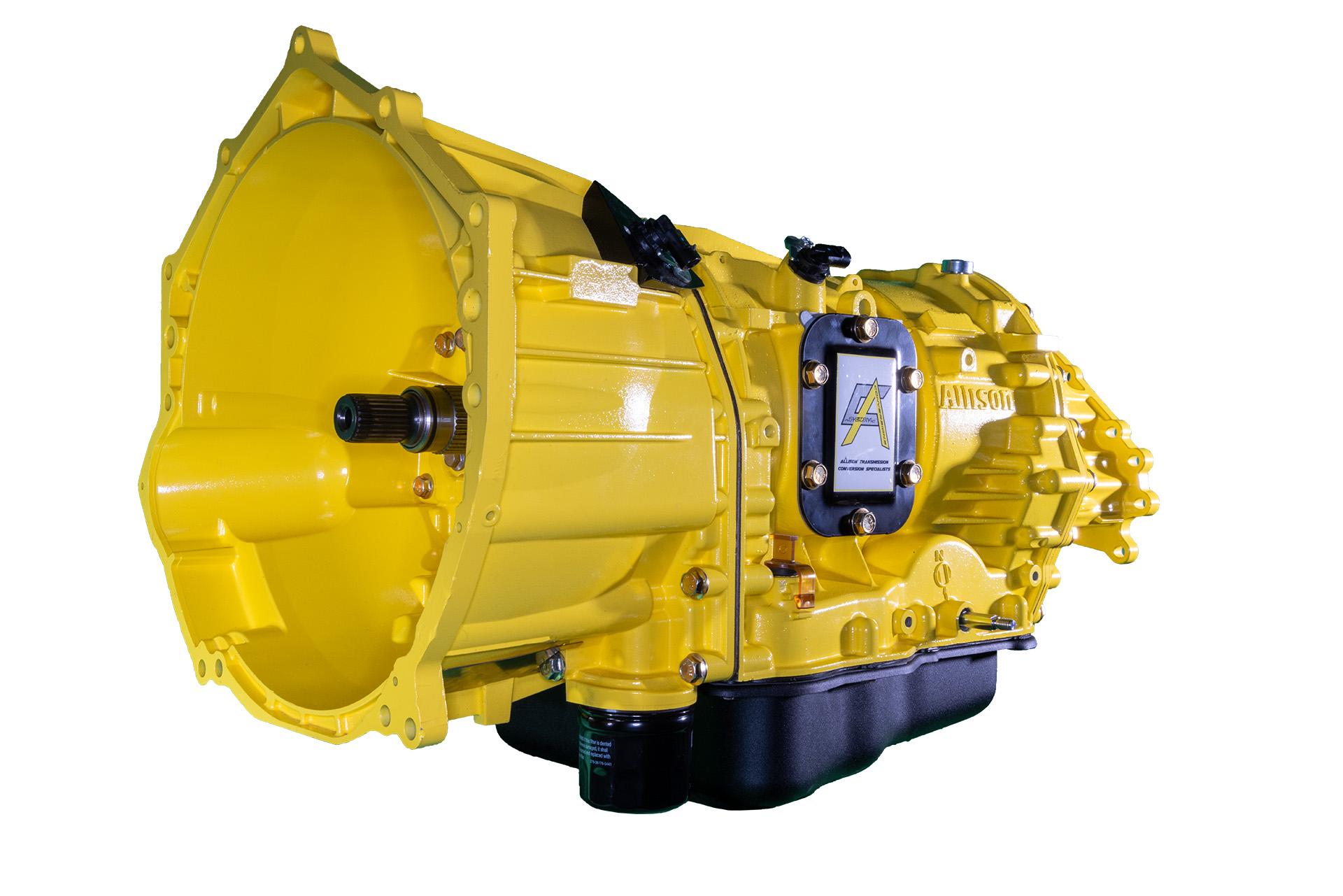
Allison 1000PK Transmission
Torque Converter to fit your needs
Wiring Harness
Flex Plate Adapter
Transfer Case Adapter, Couplers, and Tone Rings
Mounting Kit and Shift Linkage
Cooling Kit
CAC Digital Display
Allison Total Control Module (TCM)
CAC Total Control Module (TCM)
48RE w/ Throttle Valve Cable Allison Conversion Kits
How to determine the Right Torque Converter
Maximizing Performance: Using Tire Diameter and Gear Ratio Calculations to Choose the Ideal Torque Converter
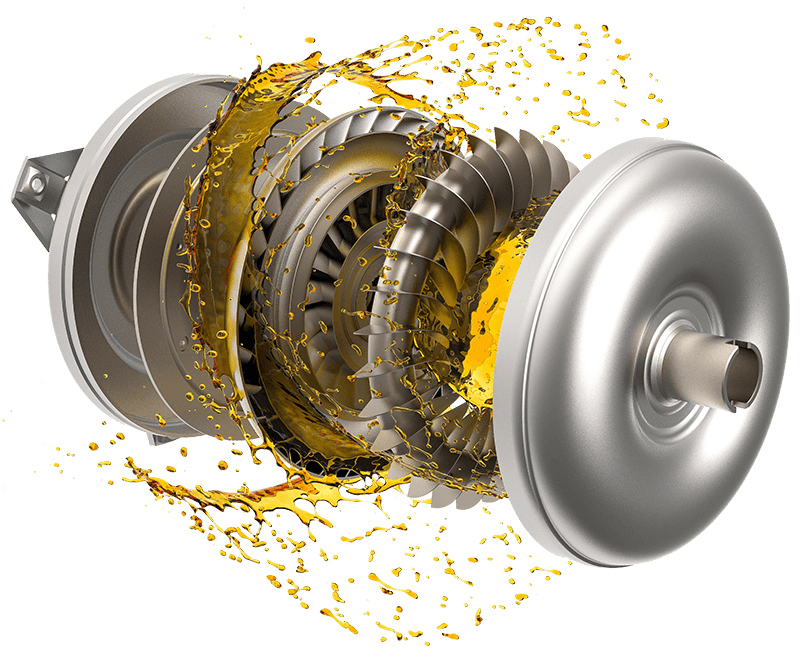
FAQ'S
What are the benefits of converting my Dodge Ram's current transmission to an Allison?
Converting your Dodge Ram's transmission to an Allison can result in numerous benefits including improved durability, enhanced towing capability, increased fuel efficiency, and smoother gear shifts, thus optimizing your vehicle's performance.
Is an Allison conversion compatible with all Dodge Ram models?
Most Dodge Ram models can benefit from an Allison transmission conversion, but it's advisable to consult with a specialist to ensure compatibility with your specific model.
Can I use my existing Dodge Ram transfer case with an Allison conversion?
Yes, with the right adapters, your existing Dodge Ram transfer case can be utilized in an Allison conversion.
Which Allison transmissions are best suited for Dodge Ram vehicles?
The Allison 1000 series is a popular choice for Dodge Ram vehicles due to its reliability and performance, but the best option depends on your particular needs and vehicle model.
What is the process for converting my Dodge Ram's transmission to an Allison?
The conversion process involves removing your Dodge Ram's current transmission, fitting the Allison transmission with the necessary adapters, and installing it. The wiring harness, TCM, and other components are also adjusted accordingly.
Will my Dodge Ram's performance and fuel economy improve with an Allison transmission conversion?
Yes, an Allison transmission is designed to provide smoother shifts, increased durability, and better fuel efficiency, all of which contribute to improved vehicle performance.
What specific components come with the Allison conversion kit for Dodge Ram vehicles?
An Allison conversion kit typically includes components such as the transmission (if chosen), TCM, torque converter, wiring harness, adapters, and other necessary parts for the conversion.
Can I provide my own Allison transmission for the conversion, or can it be included in the kit?
You have the option to either provide your own Allison transmission or include it with your conversion kit purchase.
Can I perform the Allison transmission conversion myself, or do I need a professional?
While it's possible for experienced individuals to do the conversion, it's generally recommended to hire a professional to ensure the job is done correctly and safely.
How long does a typical Allison conversion take for a Dodge Ram?
The conversion time can vary based on the vehicle and the specific conversion kit. On average, it might take a few days to complete.
Will converting my Dodge Ram's transmission to an Allison affect my warranty?
An Allison conversion could affect your vehicle's warranty depending on the specific terms of your warranty agreement. We recommend checking with your warranty provider before proceeding with the conversion.
What should I do if I encounter issues after converting my Dodge Ram's transmission to an Allison?
If you face any problems after the conversion, it's best to contact your conversion specialist for troubleshooting assistance or potential service needs.
Can I use an Allison transmission from a different vehicle (like a Chevrolet/GM) for my Dodge Ram conversion?
Yes, an Allison transmission from another vehicle can be used, provided it's compatible with your Dodge Ram model. Ensure to consult with your conversion specialist before proceeding.
Do you offer rebuilding services for Allison transmissions?
Yes, we do offer rebuilding services for Allison transmissions, ensuring your transmission is operating at peak performance.
What is the cost range for an Allison transmission conversion for Dodge Ram vehicles?
The cost can vary significantly depending on the specific Allison model, whether you're providing the transmission or purchasing it as part of the kit, and any additional services required. Please contact us directly for a more precise estimate.


Financing Available
Financing is available, so that you can get on the road faster




